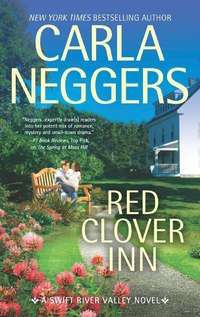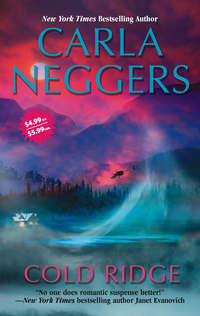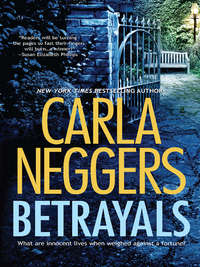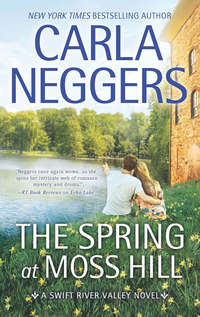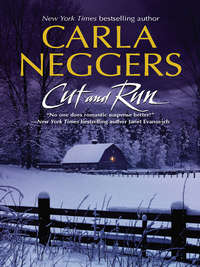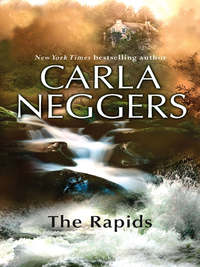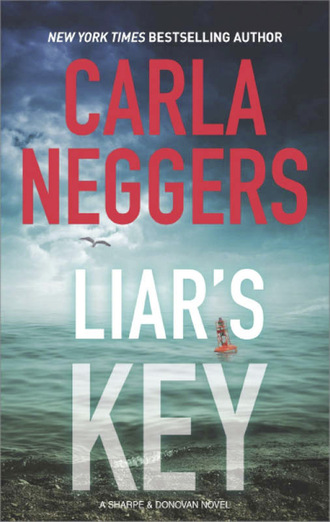
Полная версия
Liar's Key
Oliver waved a hand. “You and your fantasies about me, Emma—Agent Sharpe. I flew into Dublin from London yesterday thinking I’d have a pint with your grandfather, but I discovered he’s already in Maine. I consoled myself with a quick visit to quaint, pretty Declan’s Cross.”
“Why did you want to see my grandfather?”
“Wendell and I always have things to talk about.”
“He was in London last week before he flew here on Saturday. Did you see him?”
“I shared a dram of an interesting new Scotch with him. Now, what can I do for you, Agent Sharpe?” Oliver made a show of glancing furtively around him, then leaned close to the screen. “Keep in mind MI5 is likely listening to us.”
Emma wouldn’t be surprised if they were. “You were at a party at Claridge’s on Sunday. Tell me about it.”
“Tell you what?”
“For starters, why were you there?”
“Why wouldn’t I be? Don’t sound so surprised. I live in the neighborhood and Claridge’s is one of my favorite hangouts.”
It wasn’t a direct answer to her question but Emma let it go. “Who else was there?”
“Your parents.” His brow furrowed. “Did the good Faye and Timothy Sharpe see or hear something of interest to the FBI, or to you personally?”
“I haven’t spoken to them. This is a voluntary interview on your part, Oliver, but I’d like to ask the questions if you don’t mind.”
“Of course. By all means.” He sat back farther, clearly relaxed. “Ask away.”
“A retired FBI agent was there. I believe you know him. Gordon Wheelock.”
“Do I?”
“He investigated your US thefts. San Francisco, Dallas. He’s responsible for putting away a number of art thieves and was sorry he retired before he could put you away.”
“My thefts? Me? The still unidentified thief, you mean.” Oliver gave an obviously faked yawn. “I want to take a walk before I return to London this evening. Aoife O’Byrne is in Declan’s Cross painting sunrises, did you know? They aren’t a cliché subject in her hands, although I am partial to her short-lived phase painting porpoises.”
Emma refused to be distracted. “Agent Wheelock stopped in my office this morning and told me he saw you at Claridge’s.”
“Did he? Hmm. He must have been the disheveled American who gave me the dirty look. We didn’t speak but someone mentioned he was an American agent of some sort.”
“Who mentioned him?”
Oliver made a face. “Take a guess.”
“Your MI5 handler?”
He pressed a finger to his lips. “Shh.”
“Was he at the party?”
“Obviously you already have the answer, but I’m not going to confirm or deny his presence. It was an uneventful, perfectly civil English tea. No guns, no blood, no arrests. I wish you’d been there, Emma—although given your life these days, I suspect the afternoon would have taken a different turn and ended up in the papers.”
She ignored his remark. “Any particular interest in late antiquity or the Victoria and Albert Museum?”
“Of course. Both. I’m a mythologist and I’m devoted to the museum. You’ve been, haven’t you?”
“A number of times. Did you see anyone with Agent Wheelock?”
“As a matter of fact, yes. He arrived alone but he met up with Claudia Deverell. I believe you know her? She’s an American who used to work at one of the big auction houses. She specializes in Mediterranean antiquities. She lives in London.”
“I know who she is,” Emma said.
“That’s what I thought. She and her family are no strangers to the Sharpes. Wasn’t her mother once a Sharpe client? Victoria Norwood Deverell. She died last year. Cancer. Very sad. The Norwoods were great collectors of antiquities, with a special passion for mosaics. They’ve owned a house in Heron’s Cove for generations.” Oliver sat forward, as if he were in the same room with Emma instead of on the other side of the Atlantic. “Is Agent Wheelock meddling in FBI business, Emma?”
She kept her expression neutral. “Did you hear any interesting rumors while you were at the party on Sunday?”
“Ah. You mean the rumor about stolen Byzantine mosaics. Did that get your retired FBI agent worked up? I know nothing.”
“How, when and where did you hear the rumors yourself?”
“I was eating a delightful mini scone with clotted cream and strawberry jam when I overheard two elderly gentlemen say they’d heard someone had nicked a couple of ancient mosaics from a London collector. I got jam on my shirt cuff and went to the men’s room. I don’t know the gents and heard nothing further before I left.”
“Since then?”
“Not a peep.”
He could be lying, or he could be telling the truth. Emma couldn’t tell. “Did you speak with Claudia Deverell yourself?”
“Your parents introduced us but I didn’t linger. Didn’t Claudia once date your brother? But that’s none of my business, and I must be going. By the way, the sheepskins I sent you and Colin this winter are wonderful in warm weather, too. You’ll see.”
“Oliver—wait.”
But he was gone.
Emma shut her laptop. No point trying to get him back. He wouldn’t answer. She rolled to her feet and went into the bedroom. She’d rented the apartment when she’d first moved to Boston, months before she’d met Colin. It was small for the two of them but they’d decided to keep it, given its convenient location and Boston’s sky-high rents. They had his house in Maine for more space. Not that they’d needed space lately, given his absences.
She dug her overnight bag out of the closet and set it on the double bed. Thinking about living arrangements was a welcome respite from thinking about Gordy Wheelock and whatever he was up to, and how it involved Oliver York, Claudia Deverell and the Sharpes.
The Sharpes.
Emma unzipped her suitcase. She was a Sharpe, too. She didn’t need to remind herself.
Her parents hadn’t responded yet to her text. Her father still worked for Sharpe Fine Art Recovery from London in a low-stress research and analysis position. Her mother had left her job as an art teacher. They made a point of socializing on occasion, sometimes because it was good for business but mostly because it was good for them for its own sake. A new procedure in December had provided her father with some relief from his chronic back pain, but Emma didn’t know when, or if, her parents would return to Maine, even for her wedding.
She threw a few things into her suitcase. She had some clothes at Colin’s house—yoga pants, sweatshirts, hiking shoes, kayaking gear—but she’d need something to wear to lunch with his mother as well as to the open house. Now she had to add checking up on Gordy Wheelock to her list for the long weekend.
Would Claudia Deverell be there? Emma hadn’t seen Claudia or any of the Deverells in at least six years. She’d been a novice then. Blonde, attractive and a few years older, Claudia had joined Emma on the tidal river in Heron’s Cove. I can’t believe you’re a nun, Emma. You were always so worldly and well-dressed, and you seemed to enjoy life. But I shouldn’t call you Emma, should I? It must be Sister Something.
Sister Brigid. I’m a novice. Are you in town long?
I’m here with my mother for the weekend. It’s Fourth of July, or didn’t you know?
Emma, wearing her modified habit, her hair pulled back with a wide white headband, had picked up two river-polished stones, handed one to Claudia and then tossed hers into the rising tide. She’d learned not to be defensive about people’s notions about a religious life. She invited Claudia to tour the convent, located on a small peninsula near Heron’s Cove.
Claudia had tossed her stone into the river. My maternal great-grandfather was good friends with the man who built the original estate that’s now your convent. They were adventurers. They did several trips together in the early twentieth century and brought home all sorts of treasures from the lands of the former Roman Empire. Loot, we might call it now. Eye of the beholder, I suppose. She’d dusted bits of mud off her hands and smiled. Good to see you, Emma.
Claudia never came to the convent for a tour, and Emma left the Sisters of the Joyful Heart a short time later for her new life with the FBI—and now her life included Colin.
She wondered if Claudia had been the one who’d told Gordy about her past.
Emma slung her overnight bag over one shoulder and headed out. Her next logical step was a chat with her brother and her grandfather about Gordy, Alessandro Pearson, Claudia Deverell and the rumors about stolen mosaics. Fortunately, for the first time in years, Wendell Sharpe, founder of Sharpe Fine Art Recovery and one of the foremost private art detectives in the world, was less than two hours away in southern Maine, and Emma wouldn’t have to fly all the way to Dublin to see him.
4
Near Ardmore
County Waterford, Ireland
Mary Bracken paused on the narrow lane that wound along the cliffs above the village of Declan’s Cross. She was winded from walking too fast up the hill, but the lane had leveled off. She was on the headland where Sean Murphy, a garda detective, had his farm. As she caught her breath, she watched a trio of chubby lambs chase each other in the pasture on the other side of a barbed-wire fence. Nearby, two ewes nibbled on the lush green. Mary could hear the bleating of the lambs above the crash of waves on the rocks far below her. She didn’t know if the tide was coming in or going out, just that it was somewhere between low and high.
She knew whiskey, not tides, she thought with a smile.
She resumed her walk on the quiet lane, a short distance from historic Ardmore, the ancient land of Saint Declan. She loved this part of Ireland, but it wasn’t home. Home was Killarney to the west, a favorite with tourists given its natural beauty, national park and fascinating history. Bracken Distillers, where she worked, was located in the hills not far from the busy village. A good location.
I should be there now.
Mary sighed, frustrated with her obsessing. She’d made her decision. She even had her boarding pass for her flight tomorrow. No point questioning her motives for setting off to America now. She’d fly from Dublin to Boston and then drive on to Maine and a visit with her brother, Finian.
Her priest brother.
One of the ewes spotted her and bleated loudly, as if she knew Mary needed a good talking-to.
She shoved her hands into her jacket pockets and continued on her way. Where would she be now if Finian and Declan, twin brothers and the eldest of the five Bracken siblings, had decided to make a go of the Bracken farm instead of launching their own whiskey business?
She passed another ewe, a lamb at her teats.
Mary smiled. “That’s where I’d be. I’d have little ones at my teats by now.”
As it was, she had a full-time job at Bracken Distillers, running tours and the whiskey school. She loved her work. She and Declan got on well.
They missed Finian.
Mary felt a lump in her throat. “Ah, Fin.”
Where would he be if he’d made a go of the farm?
He’d be off on a tractor, fixing fences and tending sheep instead of across the Atlantic working as a parish priest in a small Maine fishing village. Fixing himself, tending his church flock—living far away from the reminders of his loss. His wife, his daughters. Gone too soon.
He was a worry, Father Finian Bracken was.
Mary, the youngest Bracken, usually wasn’t prone to worry or obsessing, but Finian’s choice to enter the priesthood felt all wrong to her and had from the start. Now seven years had passed and he hadn’t yet returned to Bracken Distillers and his senses. She feared he never would.
Old Paddy Murphy waved to her from his tractor, across a rolling pasture on the other side of the lane as it curved along the cliffs. She waved back, and Paddy continued his work, which no doubt involved mud, muck and manure. Mary could smell the salt water and welcomed the fresh, clean breeze, no hint of rain in the clear air. As the lane wound closer to the cliffs, she saw the tide indeed was ebbing, and she wished her worries could ebb with it. Yet she knew even if they could, they’d be back, as sure as the tide would rise again.
The lane turned to dirt, narrowing further as she approached the tip of the headland, where a medieval church lay in ruin along an ancient stone wall covered with moss and tangles of greenery. Mary recognized holly, rushes and a small oak, but she couldn’t name the spring wildflowers, delicate-looking with their pink and blue blossoms amid the vines and moss. Like tides, she didn’t know much about wildflowers. They seemed to hold their own against rock, wind and sea, and were an integral part of the rugged, beautiful scenery.
Three ornately carved Celtic Christian stone crosses stood on a green hilltop above her, as if they were sentries protecting the headland. She noticed a movement, and then recognized Oliver York as he emerged from behind the center cross. “Don’t come up here,” he called to her. “It’s muddy as bloody hell.”
Mary stayed put as he trotted down the hillside toward her. She zipped her Irish Mackintosh and felt the stiffening breeze whip through her long, dark Bracken hair.
She thought the mysterious Brit on his way to her might be one of Finian’s new friends, too. He disappeared into the church ruin, its partial walls of lichen-covered stone behind the trees and vines on the overgrown wall. Mary didn’t know what to make of him. They’d met briefly in February, here in Declan’s Cross. Finian had been there, home in Ireland for a short visit.
Oliver squeezed between the oak and a holly and jumped onto the lane, missing a puddle by inches. He was, indeed, splattered with mud, from his Wellingtons to his well-worn waxed-cotton jacket. His tawny hair was tousled and his cheeks were red, no doubt from the windier conditions up by the crosses.
“Mary Bracken,” he said cheerfully. “Father Bracken’s youngest sister. Hello, Mary. I don’t know if you remember me. Oliver York.”
“I do remember you. How are you, Oliver? It’s a beautiful afternoon for a walk.”
“I suppose it is. I’m not much on rambling, I’m afraid.” He glanced out at the sea, a deep turquoise in the late-day light. “This is a good spot to nourish the soul, if one goes for that sort of thing.”
“Do you?”
“Sometimes. Here, especially. I can’t explain.”
He shifted his gaze back to her, scrutinizing her with a frankness she didn’t find unsettling, perhaps because of his overall good cheer and easygoing manner. She was dressed casually, in leggings, a simple top under her jacket and waterproof walking shoes.
“I didn’t expect to walk this far,” she said. “Did you just arrive in Declan’s Cross?”
“Last night. I stayed at the charming O’Byrne House Hotel. I enjoyed Bracken whiskey in the lounge before turning in and then a full Irish breakfast this morning while I looked out at the Irish Sea. I checked out before I started up here.”
“Did I interrupt your contemplation of ancient Irish Celtic myths and legends?”
“Hardly. I was contemplating getting on with my drive to Cork in time for my flight back to London.” He tilted his head to one side, his green eyes narrowing on her. “And you, Mary? What are you contemplating on your ramble among the sheep, sea and ruins?”
“I was just enjoying the scenery.” It wasn’t the entire truth, of course, but she wasn’t baring her soul to this man. “I leave for Dublin soon. I have an early flight to Boston tomorrow.”
Oliver’s eyebrows went up. “Is that right?”
Yet...he didn’t seem surprised. Mary couldn’t put her finger on why she thought that. She heard a bird twittering in the rushes and suddenly wished she wasn’t leaving for Dublin and America but could stay on here for a few days.
“Will you be visiting your brother in Maine?”
She nodded. “I want to see him before his year there is up. I’m staying with him at the rectory. He can’t take much time off, but I’ll be able to amuse myself.”
“I’ve no doubt. Is this a sudden trip?”
“The priest he’s replacing is finishing his Irish sabbatical in a few weeks. If I don’t visit now, I’ll never have this chance again.”
“You hope, if it means he’ll be back in Ireland,” Oliver said.
“Maybe so.”
“Did you drive here from Killarney? Declan’s Cross is a bit out of the way if you’re on your way to Dublin Airport.”
“I know, but I couldn’t resist. Have you been in touch with Finian lately?”
“Not in a while, but he and I are great friends. You must say hello to him for me.”
“I will,” Mary said.
“Did he warn you about me?”
She smiled. “Everyone’s warned me about you.”
“Ah.” Oliver’s lively eyes sparked with humor. “Let me guess. I’m an eccentric, solitary Englishman steeped in the language of myth, legend and folklore.”
“Also that you’re a teller of tall tales and, like Fin, friends with dangerous types—such as the two FBI agents who were at the gathering here in February.”
“Egad.” Oliver shuddered. “Agents Emma Sharpe and Colin Donovan would throw me in irons if I referred to them as friends. That’s only the slightest exaggeration, mind you.” He kicked a clump of mud off the toe of his boot. “Does your work with Bracken Distillers put you in contact with many dangerous types?”
“Not me personally, no, but we had a brush with smugglers last spring, just as Fin was moving to America. The smugglers used an abandoned section of the old distillery for their illicit activities. They were caught with help from Fin. I missed most of the excitement, or whatever you want to call it.”
“Sean Murphy was injured in the fracas.”
For reasons to which Mary wasn’t privy, Sean didn’t approve of Oliver York. She didn’t know if his reasons were personal or professional, as an elite garda detective.
She angled a look at the Englishman. “You seem to know a lot about us.”
“I suspect Detective Garda Murphy and the FBI know far more about me than I do them. Shall we walk back to the village together, or do you want to ramble some more? I wasn’t joking about the mud up on the hill.”
“I’ll walk back to Declan’s Cross with you.”
The lane was the only route on the headland to the village. Oliver didn’t seem at all out of breath as he walked with her, the breeze picking up as they emerged from the protection of the wall and ruins. Mary found it curious if not suspicious that he’d shown up in Declan’s Cross as she was leaving for Maine to see her brother. She didn’t know if Emma Sharpe and Colin Donovan would be there, but she expected they would be.
Oliver slowed as they came to the Murphy farmhouse. Paddy, Sean’s uncle, had returned from the fields and was cleaning off the tractor in front of the barn. Sean owned the farm, but Paddy mostly worked it.
“I love listening to the lambs,” Oliver said. “Can you hear them?”
Mary smiled without looking at him. “I can.”
“I have a farm in England. I inherited it from my grandparents.”
“It’s in the Cotswolds, isn’t it? I’ve been there—to the Cotswolds, I mean. Obviously I haven’t been to your farm. I did one of those inn-to-inn walking tours.”
“More rambling,” Oliver said with a wry smile. “You went on your own?”
“Yes. It was after the deaths of my sister-in-law and nieces in a sailing accident. I was on summer break before my final year at university in Cork. I needed...” Mary broke off, searching for the right words. “I suppose you could say my solitary walk in the English countryside was good for the soul. Are you here in Ireland alone?”
The wind caught the ends of his tawny hair. “I am, yes.”
“Is your visit because of mythology or because of the dangerous types you know?”
“Perhaps both.”
He spoke lightly, but Mary detected an edgy undertone, as if her question had struck a nerve. She wondered if his response might be the truth. “When did you arrive in Ireland?” she asked.
“Yesterday. I flew into Dublin.”
“And you’re leaving tonight. That’s a brief visit.”
“I’d hoped to see Wendell Sharpe but discovered he’d already left for America. Do you know him?”
“Not personally, no.”
“He’s gone home to Maine for the first time in years. He’s attending the open house for the new Sharpe Fine Art Recovery offices.”
“Wonderful,” Mary said. “Fin and I will be there. Did you know the Sharpes investigated an art theft at the O’Byrne house about ten years ago?”
“I’ve heard,” Oliver said.
“It wasn’t a hotel then. Kitty’s uncle owned it. It was a drafty old place, I understand. The thief made off with several valuable artworks, including two landscapes by Jack Butler Yeats that are worth a fortune now.”
“He was the younger brother of William Butler Yeats. A talented family.”
“Most of the stolen works mysteriously reappeared last fall.” Mary could hear the drama in her voice, but she didn’t care. It was a captivating tale. “Only a landscape painting of the crosses and ruin out on the headland is still missing. It’s unsigned and probably of little value. Some people think it’s an early work by Aoife O’Byrne, but she hasn’t claimed it. She says she became an artist in part because of the theft.”
“I’m a great fan of her work.” Oliver looked out at the sea, past a narrow strip of pasture between the lane and the cliffs. “I own one of her porpoise paintings.”
Mary hadn’t known that but hid her surprise. “Aoife was at the gathering in February, too. You two, you aren’t...”
“We’re friends. At least I think of her as a friend. I’m a simple mythologist, Mary.”
“I doubt there’s much about you that’s simple.” She nodded back toward the church ruin. “Do you have a particular interest in the three crosses on the hilltop?”
“I’m not working on a scholarly paper, if that’s what you mean. The church that’s in ruin is named after Saint Declan. This is Saint Declan country. He’s one of the great patron saints of Ireland.” Oliver smiled, the hint of awkwardness a moment ago vanishing. “Fin’s twin brother is named Declan.”
“It’s a traditional Irish name,” Mary said. “I’m not religious. I certainly don’t believe Saint Declan was led to this part of Ireland by a bell atop a boulder floating on the Irish Sea.”
“Not literally, perhaps—”
“Rocks sink.”
“But think of rocks flung about in a fierce storm. Perhaps they could appear to float. In any case, I see the power of Saint Declan’s story not in its literal truth but in its human truth.”
“Now you sound like Finian.”
“Also the name of an Irish saint,” Oliver said with a wink. “There’s no chance of you entering a convent, is there?”
Mary laughed. “None at all. I’d have said there was no chance of Finian entering the priesthood, but obviously he did.”
“He’s a very good priest.”
“He was a good whiskey man, too. And a good father and husband.”
“You don’t approve of his vocation?”
“It’s not for me to approve or disapprove.”
“But you don’t approve.”
She sighed. “Let’s go back to discussing art. It’s much safer, don’t you think?”
“That all depends,” Oliver said.
“Oh, right—helps not to be a thief or the victim of a thief.”
He said nothing. The lane descended steeply into the village with its brightly painted homes and shops. Mary found herself wishing again she were staying here through the weekend, enjoying the spa at the O’Byrne House Hotel, indulging in scones, whiskey and full Irish breakfasts. She could wander to Ardmore with its sand beach, stunning cliff walk and impressive medieval round tower. Saint Declan was said to have been buried there. She was almost sorry she was leaving for Dublin and a long flight to Boston in the morning. She didn’t need to go to Maine.
Except she did. Deep inside her, she knew she did.
“The Sharpes came up in a conversation last week,” she said as she and Oliver turned off the lane at a bookshop, its front painted a vivid shade of red. “An American woman on a tour at the distillery mentioned them. We chatted for a few minutes after the tour. She said she was fascinated by Killarney’s history, but she herself knows more about ancient Greece and Rome. She said she inherited a passion for antiquities from her mother, who was once a Sharpe client. Small world, isn’t it?”






